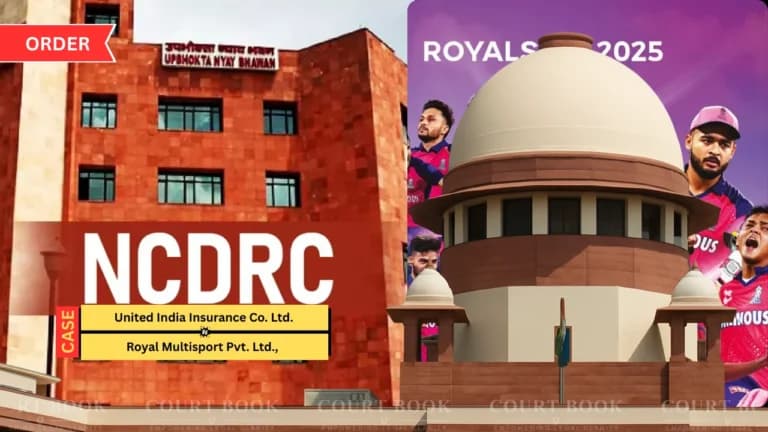The Supreme Court is hearing an appeal by United India Insurance Company against the NCDRC’s order directing it to pay Rs 82.80 lakh to Rajasthan Royals’ owner (Royal Multisport Pvt. Ltd.) over cricketer S. Sreesanth’s injury during IPL 2012.
A bench of Justices Vikram Nath and Sandeep Mehta adjourned the matter to allow the insurer to file additional documents, including the insurance application and Sreesanth’s medical fitness certificates.
Read also: FoodTechBiz Wins Copyright Battle, Court Orders Foodinfotech to Remove Copied Articles
Appellant (United India Insurance)
- Represented by ASG Aishwarya Bhati, the insurer argued that the NCDRC wrongly dealt with the claim.
- The company emphasized that the non-disclosure of Sreesanth’s pre-existing toe injury was the main reason for claim repudiation.
- It maintained that the player was not fully fit when insured, making the claim outside policy coverage.
Respondent (Rajasthan Royals Owner)
- Senior Advocate Neeraj Kishan Kaul countered that the toe injury had no impact on Sreesanth’s participation.
- He stressed: “The toe injury did not stop him from playing. He was playing! It was during the practice session that he had a knee injury.”
- Kaul added that fitness certificates were duly provided, and the knee injury — suffered during the policy period — rendered the player unfit.
Read also: Chhattisgarh High Court Seeks Better Medical Facilities in State Hospitals
Justice Mehta asked whether the submitted fitness certificate disclosed the pre-existing toe injury, as required under clause (e) of the policy. The bench also remarked:
“If the pre-existing toe injury was disclosed, the insurer could have either refused the coverage or charged a higher premium.”
Background of the Case
- For IPL 2012, Rajasthan Royals took a Special Contingency Insurance – Player Loss of Fees Cover worth Rs 8.70 crore.
- On 28 March 2012, Sreesanth suffered a knee injury in a practice match at Jaipur. He was declared unfit for the tournament.
- The franchise claimed Rs 82.80 lakh for loss of player fees. A surveyor confirmed the injury was sudden and unforeseen, bringing it under policy coverage.
- However, the insurer repudiated the claim, citing non-disclosure of a prior toe injury.
Read also: President Appoint New Judge of Allahabad High Court
United India Insurance wrote:
“Undeniably, the player was suffering from a career-threatening toe injury in both legs… It was not a fit player accidently injured, but a pre-existing condition from which he had not fully recovered.”
The Commission ruled in favor of Rajasthan Royals, holding that:
“When the fact of a knee injury is established through evidence such as X-rays, MRI reports, and doctors’ opinions, repudiation based on a pre-existing toe injury amounts to deficiency in service.”
Challenging this, the insurer moved the Supreme Court. The matter has now been adjourned for additional documents.
Case Title: United India Insurance Co. Ltd. vs. Royal Multisport Pvt. Ltd., Diary No. 33872-2025















